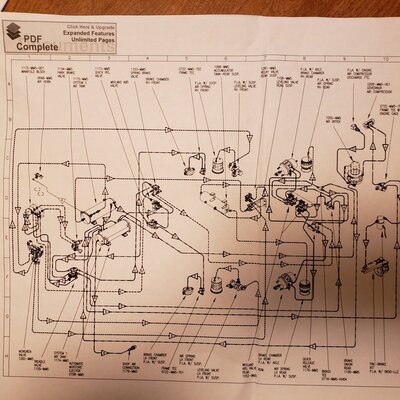billbenham
Member
- Joined
- Jan 4, 2016
- Posts
- 10
I recently bought a 1999 MH with Freightliner chassis and now I notice the air pressure fluctuating on about a twice-a-minute cycle while driving at highway speed on a relatively smooth road. Drops to 90 then builds back up to 105. Is this normal? I've checked for water in the tanks and there was none. I saw on this forum a note that Freightliner spec for air pressure decay when parked and shut down is 2 PSI per minute. I think I am meeting that spec but not sure.

